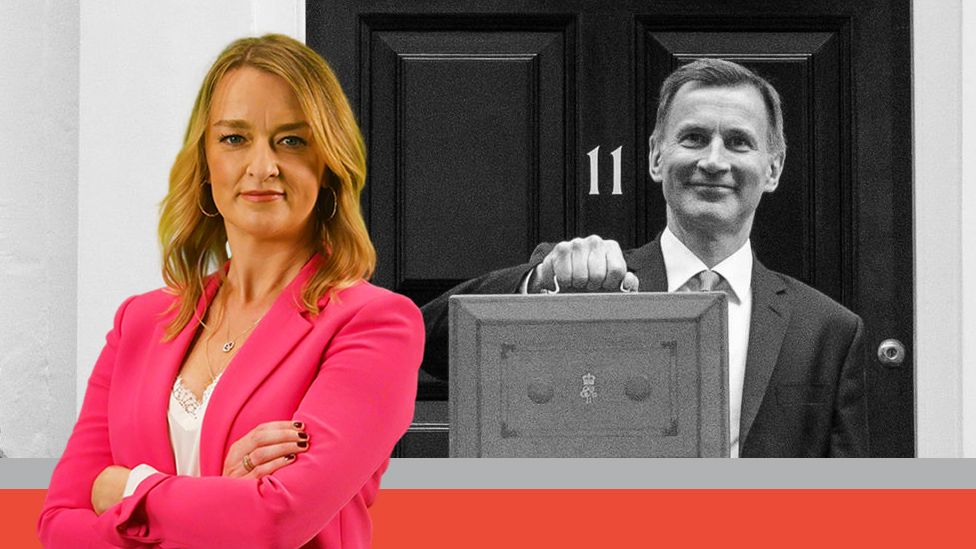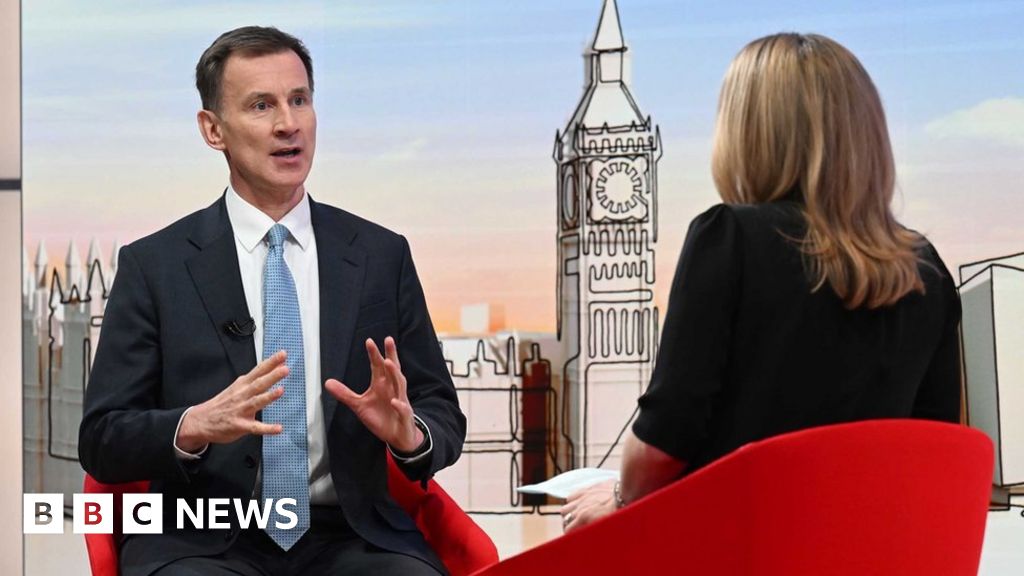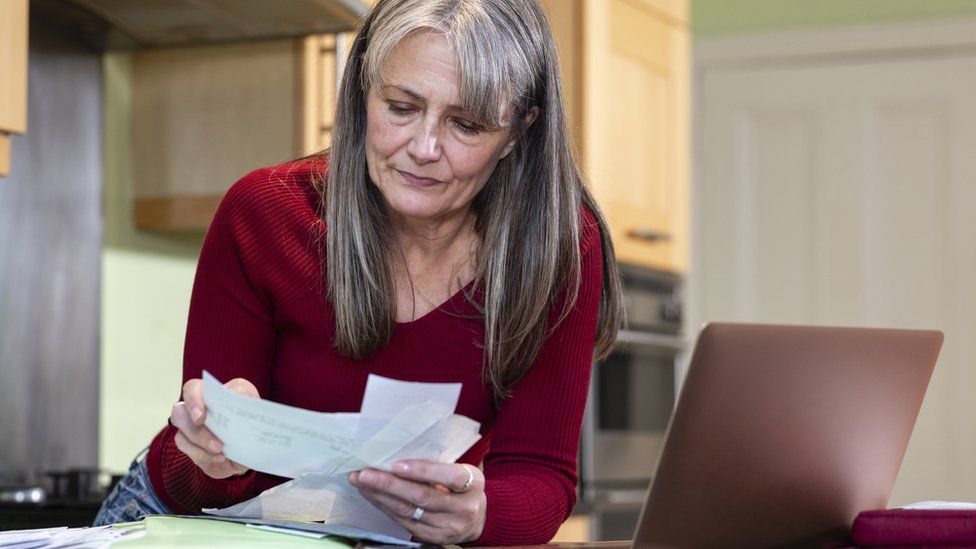This video can not be played
To play this video you need to enable JavaScript in your browser.
Chancellor Jeremy Hunt has said he wants to move towards lower taxes, but will only do so in “a responsible way”.
He told the BBC it would be “unconservative” to cut taxes by increasing borrowing.
Mr Hunt is under pressure from some Tory MPs to reduce taxes in Wednesday’s Budget, ahead of a general election that must take place by January.
A further cut to National Insurance is believed to be among the measures being considered by the chancellor.
In an interview with the BBC’s Sunday with Laura Kuenssberg programme, Mr Hunt said the Budget, when the government’s sets out its plans for tax and spending, would be about “long-term growth”.
He said he also hoped to “show a path” towards a lower-tax economy.
“We’ve been very consistent, that we would only cut taxes in a way that was responsible and prudent,” he said.
“The most unconservative thing I could do would be to cut taxes by increasing borrowing.”
Overall the amount of tax people pay is still on course to reach record levels, despite the main rate of National Insurance being cut from 12% to 10% in last year’s Autumn Statement.
Mr Hunt has repeatedly hinted that he wants to reduce taxes further in the Budget but in recent weeks he has suggested there is likely to be less scope for this than he had hoped.
With only 72 hours until the Budget, Mr Hunt was firmly in the damping down expectations mode.
At the start of this year, the government’s independent economic forecaster, the Office for Budget Responsibility (OBR), had estimated the chancellor had about £30bn of “headroom” to spend in the Budget, after borrowing costs fell sharply.
Since then, borrowing costs have begun to rise again and by the middle of last month, the BBC understands the figure was back to its November level of roughly £13bn.
With the government’s spending rules and the OBR breathing down his neck on one side, and the Tory backbenches who want the historically high taxes cut, it is not a comfortable position.
However, there is wide expectation at Westminster that he will reduce some taxes, even if the moves are not significant.
Labour’s shadow chief secretary to the Treasury Darren Jones said: “The chancellor says he wants to cut taxes, but it is the Tories who have raised taxes to their highest level in 70 years.
“No matter what the chancellor does in the Budget this week, working people will be worse off thanks to 14 years of Tory failure.”
Paul Johnson, director of the Institute for Fiscal Studies (IFS) think tank, told the BBC that any tax cut in the Budget was “likely to be undone after the next election, whoever wins”.
The IFS has also warned that further reducing taxes is likely to mean spending cuts in the future.
Asked if the government should be spending more on public services, rather than tax cuts, Mr Hunt said: “I think what most people want is better public services and a lower tax burden.
“The only way that we have a chance of delivering something like that is by spending the money that we spend on public services much more efficiently.”
The government has already announced an £800m package of reforms aimed at freeing up NHS and police time, for example using Artificial Intelligence (AI) to cut NHS scan times and drones to assess incidents such as traffic collisions.
‘Stunting’ economic growth
Former chief economist at the Bank of England Andy Haldane told the programme he thought the government’s self-imposed spending limits – known as “fiscal rules” – were “stunting” economic growth and constraining the chancellor’s decisions.
These include getting debt as a proportion of the size of the economy falling in five years.
Mr Hunt said he did not agree the government should change its fiscal rules because “people would interpret that as Britain losing control of its finances”.
Recent memories of the meltdown in the financial markets following Liz Truss’s mini-Budget in 2022 – which included £45bn of unfunded tax cuts – are a reminder of why such rules exist.
But there does seem to be growing disquiet that the system that is meant to guarantee stability can have a negative impact too.
Non-doms
Meanwhile, the chancellor is also considering other measures to raise revenue, including a new tax on vapes and scrapping non-dom tax status.
People with non-domiciled status are UK residents whose home for tax purposes is abroad. Under the current system, they do not have to pay UK tax on money they make overseas.
Mr Hunt has previously defended the tax status, arguing it helps make the UK an attractive place for well-off people to live and work.
Labour has pledged to abolish non-dom status and spend the money generated on schools and the NHS.
If Labour backs any tax cuts the chancellor announced, which they are expected to do, this would leave questions over how some of their spending pledges would be funded.
Mr Hunt refused to comment on any potential changes to specific taxes.
However, he told the BBC: “The country sees through gimmicks and we are not going to do gimmicks on Wednesday.”
Related Topics
-
-
7 hours ago

-
-
-
21 hours ago

-

